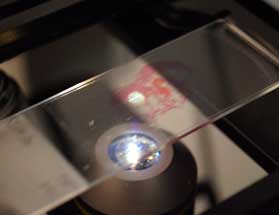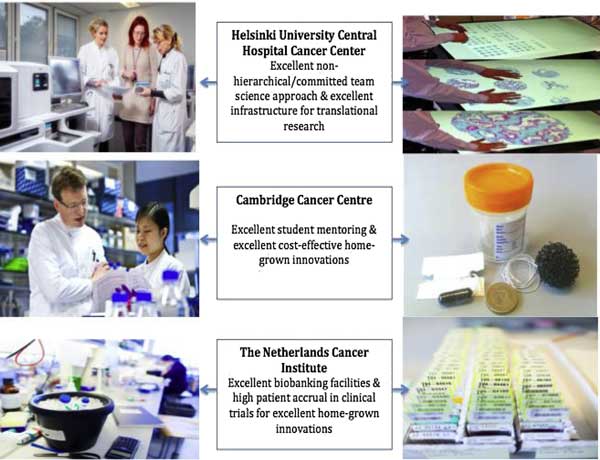
A new assessment framework, which is about to be rolled out across cancer centres in Europe, has given Cambridge top marks for translating the latest scientific discoveries into clinical applications which will improve the diagnosis and treatment of cancer patients.
The new Excellence Designation System (EDS) has been created to assess how well cancer centres are doing in conducting translational research – often coined from bench to bedside and back – with the expectation that many European centres will aspire to join a league of centres of excellence.
Building on the already well-established OECI (Organisation of European Cancer Institutes) designation of Comprehensive Cancer Centres, the EDS adds new criteria that are not considered in the OECI system.
Two key factors have emerged for measuring the success of translational research: reducing the time taken to translate successful innovations from the laboratory into the clinic, and taking observations made in clinical studies back into the lab for further investigation or for the discovery of new biology.
The Cambridge Cancer Centre was one of the first three centres to be assessed in September 2014. The panel of experts from Harvard Cancer Center, National Cancer Institute, Princess Margaret Cancer Center, and Gustave Roussy reported many extremely positive findings.
These include the superb leadership and strong links between basic science, translational research and clinical trials and back again to the laboratory. The assessment praised the clinical innovations being developed in Cambridge, such as the Cytosponge which is a simple way of monitoring people at risk of developing oesophageal cancer, and the new stratification of breast cancer into 10 groups with distinct genetic signatures.
The high proportion of cancer patients offered clinical trials and the number of trials that have originated from research conducted in Cambridge, was also highlighted.
“Preparing for the pilot of European CCCs in translational research helped us identify our strengths and weaknesses and where translational research can contribute to better treatment and care for cancer patients. The interaction with and the feedback from the site visit committee were essential and highly appreciated in this process. The pilot has stimulated internal discussion, which will lead to further strengthening of our translational cancer research programme.” said Professor Carlos Caldas, Breast Cancer Programme, Cambridge Cancer Centre.
One of the main conclusions from the team developing the assessment framework was the need to strengthen the collaboration between cancer research centres in order to achieve critical mass and share the infrastructure necessary for innovative translational cancer research. A good example of this is Cancer Core Europe where Cambridge is one of six leading cancer centres across Europe that are collaborating to share clinical data and develop innovative trials.
















